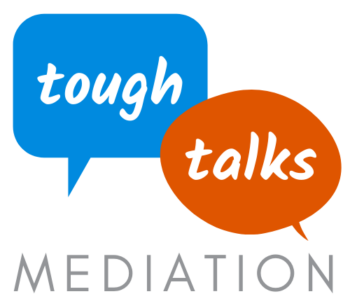Introduction:
In this post, we dive into the captivating realm of conflict resolution and explore why mediation stands head and shoulders above litigation in many situations. While courtroom battles have their time and place, the art of mediation brings with it many benefits that can transform the way we approach disputes. Here are the top reasons why mediation should (more often than not) be your preferred path to resolution.
1. Preserving Relationships
When conflict arises, maintaining relationships can often take a backseat to asserting one’s rights in a courtroom. Litigation is an adversarial environment that fuels animosity and deepens the divide between parties. In contrast, done properly, mediation fosters open dialogue, empathy, and collaboration. By promoting communication and understanding, mediation preserves valuable relationships, making it a compelling choice for those seeking resolution without burning bridges.
2. Cost-Effective and Efficient
Legal battles are notorious for their exorbitant costs and time-consuming processes. Litigation can drain financial resources and stretch on for years, leaving parties exhausted both emotionally and financially. Mediation offers a more cost-effective and efficient alternative. With a qualified and experienced mediator guiding the process, parties can avoid lengthy court proceedings, reduce legal fees, and reach a resolution in a fraction of the time. The result is a quicker and more affordable solution that leaves all parties better off.
3. Empowering Parties and Encouraging Ownership
Unlike litigation, which places decision-making power in the hands of judges or juries, mediation empowers the parties involved to craft their own solutions. Through active participation in the negotiation process, individuals gain a sense of control and ownership over the outcome. Mediation recognises the unique circumstances and needs of each party, allowing for creative and tailored resolutions that can lead to greater satisfaction for all involved.
4. Confidentiality and Privacy
Litigation can be a public affair, with court proceedings and records open to scrutiny by anyone. For sensitive or confidential matters, this exposure can be undesirable and even damaging. Mediation provides a greater degree of confidentiality, ensuring that discussions and documents remain private and confidential to the extent permitted by law. This privacy allows parties to address sensitive issues openly, fostering an environment of trust and facilitating honest dialogue without the fear of public exposure.
5. Promoting Win-Win Outcomes
Litigation tends to focus on a win-lose mentality, where one party triumphs while the other suffers defeat. Mediation, on the other hand, seeks to create win-win outcomes. Through cooperative problem-solving and compromise, parties can reach resolutions that address the interests and needs of all involved. Mediation allows for more creative and flexible solutions, opening the door to compromises that may not be available within the constraints of a courtroom.
Conclusion:
Mediation shines as a powerful and versatile tool for resolving disputes. Its ability to preserve relationships, reduce costs, empower parties, maintain confidentiality, and foster win-win outcomes make it a superior choice over litigation in many cases. By choosing mediation, individuals and organizations can unlock a path to resolution that not only resolves conflicts but also strengthens bonds, nurtures understanding, and builds a foundation for a more harmonious future. So, the next time conflict arises, consider the transformative power of mediation and embrace the possibilities it offers for a better tomorrow.
